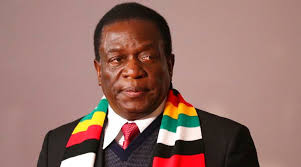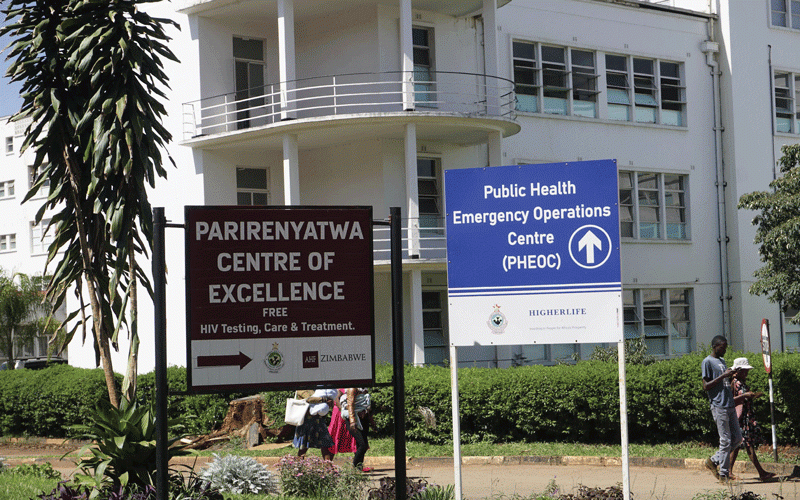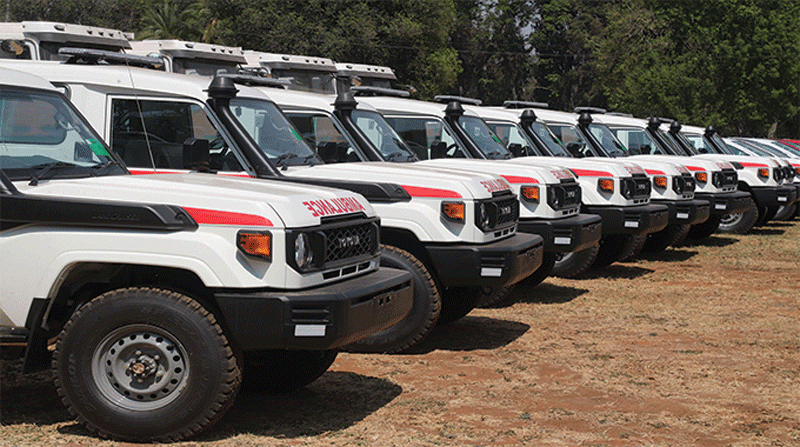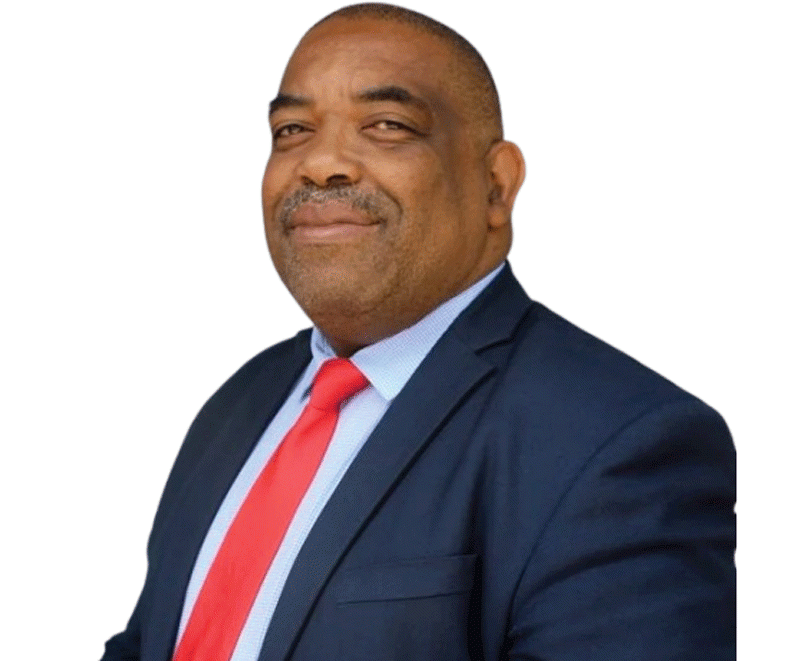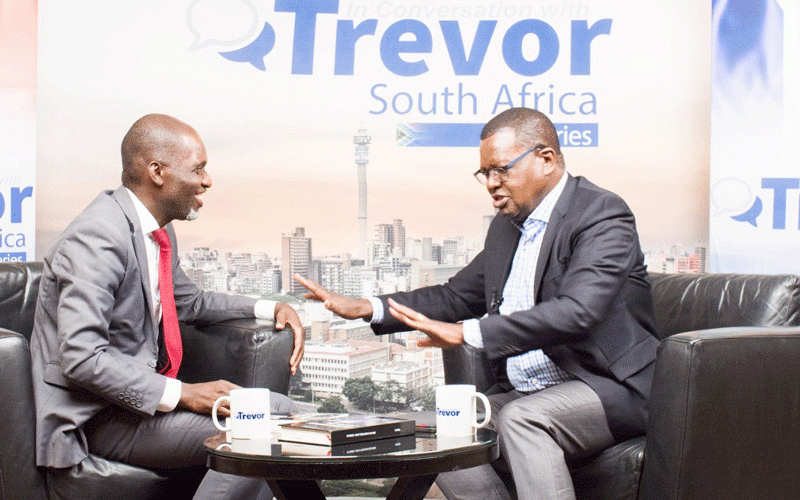
Presidential aspirant and Chief Executive Officer of JM Busha Investment Group, Joseph Makamba Busha believes Zimbabwe has a leadership vacuum which needs to be filled for the country to achieve economic independence. Busha (JB) told Alpha Media Holdings chairman, Trevor Ncube (TN) on the programme In Conversation with Trevor that as far back as 1986, he had the sixth sense to believe that Zanu PF was going to betray the tenets of the liberation struggle, and hence he left the ruling party.
Below are excerpts of the interview.
TN: Joseph Busha, welcome to In Conversation With Trevor.
JB: Thank you very much. I am very happy to be on your show.
TN: Fantastic. I will take you to, first of all. . . congratulations for the book that you have written. I always admire people who have the discipline to sit down and write books. You have just done that; we will get an opportunity to go through some of your thoughts. Let me ask you, why the book? Why did you decide to write this book? The book is called My Thoughts: Africa's Future Begins In Our Minds. Why did you think you ought to write this book?
JB: Sometimes it is always good to tell your own story so that people get to understand who you are, what you stand for. So for me, I think at this juncture, it was very important to be able to reflect on African leadership, how far we have come from. If you look in terms of where African countries were roaring into independence, the founding of the OAU was in 1963, so this is 60 years later. What have been our achievements and what do we look forward for the next 60 years? I think for me it was very important, first as a business leader, but most importantly as a presidential candidate in Zimbabwe for people to get to understand what I stand for, what I believe in as a person.
TN: Fantastic. We will get to unpack a number of things that you put in the book. You have already flagged that you are a presidential candidate for 2023 in Zimbabwe's elections. The question I have for you is why do you want to run for office? Why do you want to be the President of Zimbabwe?
JB: The first thing is to complete the triangle of independence, the equilateral triangle of independence. There are three sides: There is a territory independence, then there is the economic independence, then there is the socio-political independence.
- Zim suffers leadership vacuum: Makamba Busha
- Zimbos must continue fight to remove Zanu PF: Busha
Keep Reading
I believe that the two sides that complete our liberation struggle with the socio-political and economic independence are not attained yet.
So, I think it was important for me obviously to say well, let me pick up from where those who came before us and accomplish our struggle for self-determination.
TN: And this is not the first time that you are running, correct me if I am wrong. Is that so?
JB: No it is not.
TN: When was the last time that you tried to run and what happened?
JB: I raised my intention in 2018. I did not really campaign. I think I just voted and flew out of Zimbabwe in 2018, but I think it was really to put my name and say in 2023 certainly I will be going to campaign and win the presidential elections.
I think in 2015 I did mention as well that I think you know, Zimbabwe has a vacuum of leadership and I think it needs to be filled, and I think I am the most suitably qualified person to fill the leadership vacuum in the country. So it has been something that has been bubbling under. It has been an itch that you want to scratch.
TN: 2018?
JB: I was number four from the presidential candidates.
TN: How many votes did you get?
JB: So it was President Mnangagwa, Advocate Chamisa, Ms. Thokozani Khupe, and I was the fourth, I think it was about 1.4% of the votes.
TN: 1.4% of the votes. So you say you believe you are the right person to conclude that triangle that you were talking about for political independence, socio-economic. Why do you think it is you? Why do you think that it is you that has the gift to do that?
JB: In every generation you know leaders are called to serve. To serve for the common good, and and I think purely because of my history and my understanding why we fought for the war, uh you know the Ian Smith regime, and all the struggles for self-determination that have happened in Africa.
We need leaders who are selfless, we need leaders who are present, we need leaders who are caring. Now if you look in terms of our history, as Africa from the north to down here we all celebrated the kind of the removal or the ascendance of Africans into the political power, but we never got to the economic.
So there have been very bad examples of leadership across Africa, and because, I think I understand, I contributed to the liberation of Zimbabwe, I think right now, given that institutional memory, given what I have achieved, I represent the aspirations of many, not only in Zimbabwe but in Africa.
TN: As you are talking I can hear the other politicians voices, different from yours. I understand the aspirations of the people, I want to represent the people, that is what all politicians say. What is different about you?
JB: But do they have the experience? We are no longer talking about ideologies; or are you with the East or the West? Today we are talking about who has got the economic models, solutions; because the challenge really is about economic solutions, it has nothing to do with ideologies.
Whether you are Marxist or Leninist or Capitalist, whatever the case is. But who is more equipped to be able to find the right socio-economic model for Africa. That is what is missing.
So when you look in terms of the leaders that we have today, what do they stand for? Do we know what they stand for? So if you look at the first crop of leaders that came in the 1960’s, we knew what they stood for. I stand for peace, I stand for equitable development, and I have got a proven record in terms of the financial assistance.
I mean South Africa is the biggest economy in Africa, I understand it. I have been here for 33 years so I understand that as a trading partner, and I believe given my experience right now, my experience is most needed in Zimbabwe than elsewhere.
TN: So you say in your book: “Leaders cannot be microwaved or manufactured in a laboratory or in a classroom. But can be groomed and nurtured in natural development.” You have rightly gotten the experience in the private sector, 33 years experience you are talking about, but you do not have the political experience of leading. I mean I am reminded of Barack Obama with Hillary Clinton, being asked the question what will you do at 3am when that call comes? You are familiar with markets, but are you familiar with politics is the question that I have for you.
JB: So what is politics really, or the political economy? This is really about solving social problems right, okay? So we need to be able to say what are the 3 pillars that constitute society or that drives a country?
The first thing that drives in terms of the social economic development is business principles — is being able to manage capital and the allocation thereof but also having the emotional intelligence to understand the drivers of society. What happens, so when you talk in terms of political, political is really being able to manage people's expectations and deliver what they require to survive in terms of hospitals, in terms of education and social cohesion.
I run JM Busha 54, which is an organisation that promotes peace through sports, arts, culture and music. Certainly, in terms of empowering people. So that is really the place we should be talking about, how do you empower people?
How do you retain power into the hands of the people? That is what we need to talk about? So if we narrow it into politics, which is really just about ascendence to power, then we are not going to get it anywhere.
What we are saying here is who understands the social structure? It is almost capital structure of a business where you are able to meet equitably the expectations of people and provide solutions to be able to make sure that they live a better life. That is where we are.
TN: Okay. So we will get to your experience, get to who J.M. Busha is. But I want to go to asking you, is this just about you? Why did you not join the parties that exist? There is Zanu PF, there is CCC. Have you looked at these and said maybe I need to join?Have you looked at them? What conclusions have you made?
JB: So, basically my first experience in politics was in Zanu PF as a mujibha (war collaborator) during the liberation struggle. So I did not go to school between 1977 and 1979. All my brothers were in the war.
So, in 1986 when President Samora Machel died, at that time it was a turning point, it was almost like on the eve of our independence when Tongogara died then you sit down because you understand the struggle, what is going to happen.
So, when Samora died he was our biggest sahwira, he was our biggest supporter. That is where our bases (army) were. So who then would...President Mugabe then turn to for advice?
As you know our concept of sahwira in Zimbabwe is the person who intervenes, who comes in to help in the internal mess of a family or a country.
So I was in Zanu PF, but in 1986 at that stage, I had the sixth sense to believe that Zanu PF was going to betray the tenets of the liberation struggle, and hence I left the ruling party. At that stage I made the decision that I would run for President, and complete the liberation struggle-kind of principles, and be the second democratically elected President of Zimbabwe.
TN: And you did not think you should join the other parties that existed then?
JB: The other parties...There was no party there. I mean we had Comrade Tekere who started ZUM. Then there was Dumbutshena who started a party. Then MDC was just an idea. I mean if you look at their website they said it was just an idea, but certainly I did not know what they stood for or what they believed in as leaders.
So, President Mugabe was a nationalist, so he believed in the total independence, or not necessarily total, but in the independence of the African. So I understood what the late Mugabe stood for, and I do not know what the other guys stand for today.
TN: So is it just going to be you? Do you have a political party? Are you campaigning for all parliamentary seats, city council? What is your campaign strategy like?
JB: I belong to FreeZim Congress. I am the founder of FreeZim Congress. It is a political party. We are not contesting to be...
TN: It is called what?
JB: FreeZim Congress. So we are not contesting to be runners-up, or to have two MPs in Parliament. I believe I am the leading candidate, I am campaigning to win with the alternative governing party in Zimbabwe.
TN: Do you have structures on the ground? Are you present on the ground? Talk to me about that?
JB: Yes we do. We are going everywhere. Certainly I think in the next two months or so, it will certainly become apparent to Zimbabweans that freedom is coming at last.
TN: Coming to free Zimbabwe...?
JB: Freedom is coming for all Zimbabweans, freedom and peace, because that is what we need. We need to empower people, we need to bring back power to the people, we need to bring freedom to the people, we need to bring peace to the people.
We need to ask Zimbabweans, how do you feel? Zimbabweans right now, they feel they do not belong, they do not have a sense of belonging.
We said we are fighting to get our resources back, we are fighting to get our land back.
But today I do not believe that the empowerment is going to Zimbabweans because the mines are not going to Zimbabweans, so we need to reclaim our resources, we need to reclaim our land, we need to work the land so that Zimbabwe becomes the bread basket of Africa again.

